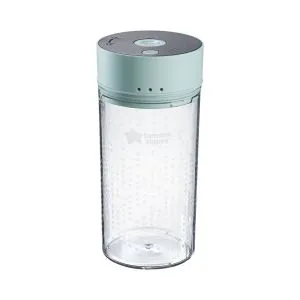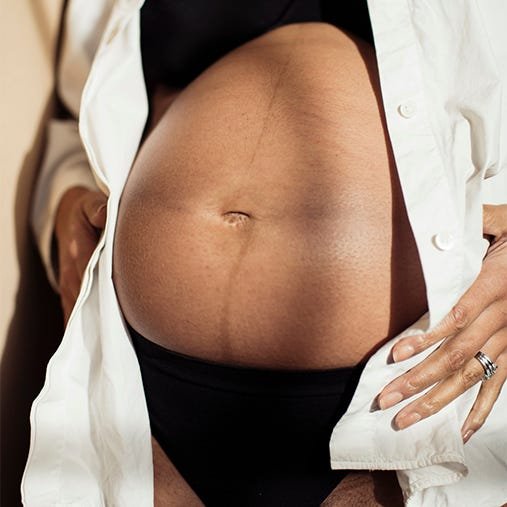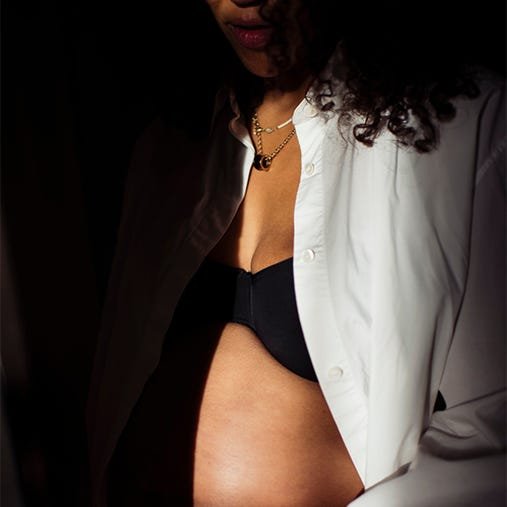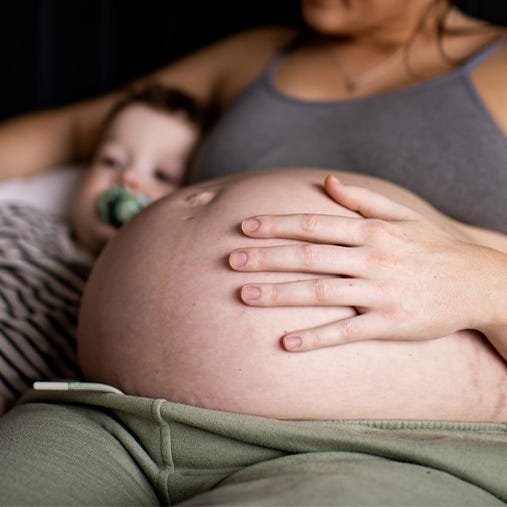As a soon-to-be parent, waiting for the arrival of your little one can be an equally exciting and nerve-wracking experience, and knowing the early signs of labour is crucial to ensure that you're well-prepared.
The symptoms of labour can vary from one person to the next, but it's essential to be aware of the most common ones. In this blog, we'll discuss the early signs of labour that you should look out for, so you can be ready for the big day.
What are the early signs of labour?
There are a few key indicators that signal that labour is about start, but the truth is, every labour experience is unique.
You may experience some of the symptoms we're going to run through, but this doesn't necessarily mean that your labour will start immediately.
- Belly drops: Toward the end of your pregnancy, your baby may be nestled under your diaphragm which can make breathing more difficult. Fortunately, one of the more enjoyable signs of labour is that your baby will start to move down or 'drop'. This is sometimes known as lightening, and it can give you a little more breathing space.
- Nesting: You may find that your nesting instincts can become very strong as you approach labour and you might find yourself going from room to room making sure that everything is ready for your new arrival. Although it's great to be prepared, it's important to resist the urge to scrub the house from top to bottom, you'll need to conserve your energy for birth, so try to relax and put your feet up if you can.
- Backache: Some people get a heavy ache in their back when their labour first starts.
- Contractions or tightening feeling: You can be sure that your labour has begun if your contractions get closer and last longer.
- Urge to go to the toilet: If your baby has moved further down in your pelvis, you might feel like you need to go to the bathroom more often.
- Losing mucus plug: When you're pregnant there's a plug of sticky pink mucus in your cervix, and this comes away just before labour starts or during early labour. This is called a 'show' and contains a small amount of blood.
- Waters breaking: Your waters can break during labour or before labour starts.
When do early signs of labour typically start?
The early signs of labour typically start in the third trimester between 37 and 42 weeks of pregnancy.
When should I go to the hospital if I am in labour?
If this is your first pregnancy, you might be uncertain about when it's time to go to the hospital or midwifery unit. The best thing to do is to get in touch with your hospital or unit for guidance.
If your waters have broken, you'll likely be asked to come in for a check-up. If you're experiencing contractions but your waters haven't broken, you may be advised to wait.
Typically, you'll be asked to come in when your contractions are:
- regular and strong
- around five minutes apart
- lasting for at least 60 seconds
Don't forget to call the hospital or unit before leaving your home and make sure you bring your notes and hospital bag.
If you live far from the hospital, it's best to leave sooner to make sure you get there in time.
Second babies tend to arrive faster, so you may need to contact the hospital, midwifery unit or midwife sooner.
If you're planning to give birth at home, follow the procedure you've discussed with your midwife regarding the onset of labour, and make sure you're aware of the signs.
When should I be concerned about any signs of labour?
You should seek medical advice if:
- you're experiencing early labour symptoms before the 37th week of your pregnancy
- you notice that your baby's movements have slowed or stopped
- you have bright red vaginal bleeding
- your waters break and they're smelly or coloured









